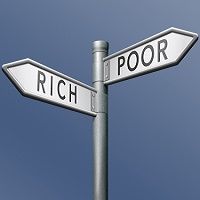- Revenue Cycle Management
- COVID-19
- Reimbursement
- Diabetes Awareness Month
- Risk Management
- Patient Retention
- Staffing
- Medical Economics® 100th Anniversary
- Coding and documentation
- Business of Endocrinology
- Telehealth
- Physicians Financial News
- Cybersecurity
- Cardiovascular Clinical Consult
- Locum Tenens, brought to you by LocumLife®
- Weight Management
- Business of Women's Health
- Practice Efficiency
- Finance and Wealth
- EHRs
- Remote Patient Monitoring
- Sponsored Webinars
- Medical Technology
- Billing and collections
- Acute Pain Management
- Exclusive Content
- Value-based Care
- Business of Pediatrics
- Concierge Medicine 2.0 by Castle Connolly Private Health Partners
- Practice Growth
- Concierge Medicine
- Business of Cardiology
- Implementing the Topcon Ocular Telehealth Platform
- Malpractice
- Influenza
- Sexual Health
- Chronic Conditions
- Technology
- Legal and Policy
- Money
- Opinion
- Vaccines
- Practice Management
- Patient Relations
- Careers
Is It Time For A Wealth Tax?
Income inequality has become a major issue in America. Is it time for us to follow Europe's lead and institute a wealth tax?

One of the (few) things that energizes all sides of the political spectrum in this unusual election cycle is the growing income and wealth disparity among US citizens. The “one percenters” by any measure, and there are many, have simply multiplied their wealth at a historic clip, while the average American’s wages and net worths have remained relatively flat.
Economists looking at this conundrum have turned their attention to Europe, where about a dozen developed countries have used some form of a wealth tax for years. One reason is that the income tax process isn’t suited to redress either income or wealth disparities. The generally positive results of a wealth tax in Europe have led to increasing calls to augment, or replace, our current convoluted and almost unmanageable income tax structure with this, new to us, program.
The basic idea is that individuals will annually pay from zero to, say, 2% of their net worth. There would be an exclusion, suggested at $3 million, and then a rate starting at 0.1% and rising to 2%. The tax is regressive and would affect those of great wealth proportionately more.
Depending upon political will, the total return could augment, replace, or exceed current receipts. And all experts agree that the income tax alone is a poor vehicle for taxing the wealthy. There are simply too many loopholes for those with the best lawyers and accountants to drive their money trucks through.
Currently, most wealth is taxed poorly by capital gains and estate taxes. The primary hole in the income tax system as it now exists is the unrealized capital gains that can remain untouched for decades, growing at taxpayer expense to become dynastic wealth.
Proponents of the plan point to the wealth tax’s encouragement of innovation and risk-taking because wealth in its early phases would not be taxed, but only after it has been amassed. The European example has shown that, contrary to some naysayers, there has been no evidence of flight of capital to lower tax regions or a decrease in savings.
Some of the cons include a concern about people shifting income to consumption instead of investment and the complexities of assessing the value of some assets, such as closely held businesses.
Economists have taught us that people do respond to economic incentives. Our behavior will change if we are “paid” to do so, including how our taxes are structured.
The Organization for Economic Cooperation and Development points out that the US raises less tax revenue as a proportion of gross national product than almost any other industrialized nation. So we do have room to increase investment in our crumbling infrastructure, reduce our debt, or whatever else we decide, if we were to raise more revenue through a relatively simple wealth tax.
But the ultimate reason for establishing a wealth tax is that wealth inequity is tied to political power inequity and such a tax would be democratizing. It is the threat to our democracy itself in the growing shift of wealth and power to the one-percenters that should energize our political attention and agendas going forward. Either way, fasten your seat belts, it’s going to be a bumpy ride.
